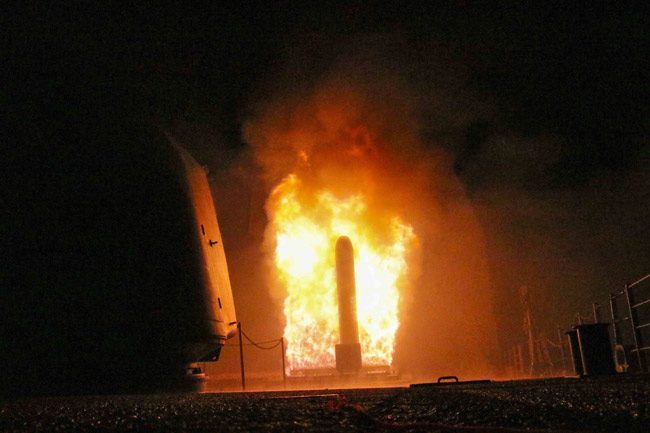
By Kevin Basl
“How do you motivate men and women to fight and die for a cause many of them don’t believe in, and whose purpose they can’t articulate?”
That’s what Phil Klay, author and U.S. Marine Corps veteran, asks in an essay published this month in The Atlantic. Unfortunately, he points out in a recent New York Times op-ed, “Serious discussion of foreign policy and the military’s role within it is often prohibited” by what he calls “patriotic correctness.”
In a well-functioning democracy, Klay argues, citizens must debate and question how their elected officials employ their military, an organization which ought to represent the values of the people. But it seems many Americans remain unconcerned about the wars the United States is currently fighting (at last count, we’re bombing at least 7 countries) though they foot the bill both in tax dollars and lives.
Why has criticism of our nation’s ongoing military follies become so muted?
I suspect, as Klay does, that some well-meaning people worry that questioning our nation’s wars means not “supporting our troops.” The question Klay doesn’t get into is why anyone should think that.
The answer is that some politicians — and businesses — want them to.
 In the late 1960s, thousands of Vietnam War veterans started joining anti-war protests, bringing new energy and authority to the movement. They’d witnessed the war’s horrors firsthand and wanted to end it immediately, which put the Nixon administration in a bind.
In the late 1960s, thousands of Vietnam War veterans started joining anti-war protests, bringing new energy and authority to the movement. They’d witnessed the war’s horrors firsthand and wanted to end it immediately, which put the Nixon administration in a bind.
In The Spitting Image: Myth, Memory, and the Legacy of Vietnam (1998), sociologist and Vietnam War veteran Jerry Lembcke argues that the Nixon administration used propaganda and misinformation to divide veterans and antiwar protesters, weakening their burgeoning movement.
The mythical image of anti-war protestors “spitting on veterans,” reinforced in many films, suggested that peace activists were traitors to the national cause and — perhaps worse — abusive to veterans.
Whether the spitting actually happened (Lembcke could find no evidence proving it did) isn’t the point. It’s the significance of the rhetoric those divisive times left us with: We can never let happen again what happened to Vietnam War veterans.
During the 1991 Gulf War, that rhetoric was used by the Bush Sr. administration to steer public discourse. Debate about going to war with Iraq got drowned under constant reminders to “support our troops.”
In the new millennium, the same rhetoric helped push Bush Jr.’s War on Terror. According to a Center for American Progress study, in 2008 the White House website contained 357 separate documents including the phrase “support our troops.”
Obama also used the rhetoric. “Because of Vietnam and our veterans,” Obama said at an event marking the war’s 50th anniversary, “we honor our military more, we take care of our veterans better.” (Never mind that the VA disability backlog of veterans awaiting care had topped 800,000.)
And Trump, who continues to keep the VA understaffed and underfunded, has requested a grandiose military parade, under the pretense of being a military appreciation celebration.
It’s no wonder why some would work to smother public debate about war. War is good business for the rich.
Defense contractors like Boeing, Raytheon, and Northrop Grumman make huge political campaign contributions and expect lucrative contracts in return. Major brands like Budweiser and Walmart regularly use “support our troops” marketing campaigns, too.
Interestingly, as we approach year 17 in Afghanistan — a war even Defense Secretary Jim Mattis has admitted we’re losing — “support our troops” spectacles have only grown (see any recent major league sports game).
Those spectacles miss the point. We must remain ever-skeptical of war, Phil Klay reminds us, if we are to preserve our democracy or support our troops.
![]()
Kevin Basl served in the U.S. Army, twice deploying to Iraq. He’s a member of About Face: Veterans Against the War and Veterans for Peace.






























oldtimer says
while I agree that the public has a right and should question when and were we should use our troops, remember active duty personal don’t have that luxury .As far as the protests during Vietnam many were directed at the service members and not just the government, I was there and experienced it first hand
MannyHM says
Indeed “active duty personnel don’t have that luxury.” (To protest or at least question the war). We tax paying parents has the duty to analyze and inquire the true objective while we still have that freedom to speak out. We sacrificed 57,000 lives of our sons, not counting the broken families, maimed bodies and PTSD of those who survived. We should have just dropped bags of cement instead of bombs, bulldozers instead of tanks. The main question is – What did we really gain in Vietnam ? (Or at least – what did we learn ?)
Pogo says
@Equal time for another old timer
“I guess we all died a little in that damn war.”
– Josie Wales
I thank everyone for the VA – warts and all. To the respectable patriots who couldn’t slow down for someone in a dress uniform trying to hitch a ride: Thanks for nothing. To Kevin Basl I say thank you for your past, and present, service. You’re in damn good company:
Fall in and listen up
https://www.youtube.com/watch?v=F3_EXqJ8f-0
Randy Jones says
Duty: A moral or legal obligation; a responsibility. One of the most contentious issues at the Constitutional Convention (Philadelphia, 1787) was “a standing army”. In fact one of the primary reasons the convention occurred was because soldiers of the Continental Army had not been paid in a long while. Imposts (tariffs) were intended to pay the soldiers back wages AND the debt our fledgling government had accumulated in our bid for independence. The efforts failed in Congress (which state/states countered the effort?). From wikipedia.com, “The first tariff law passed by the U.S. Congress, acting under the then recently ratified Constitution, was the Tariff of 1789. Its purpose was to generate revenue for the federal government (to run the government and to pay the interest on its debt), and also to act as a protective barrier around *****domestic***** (emphasis added) industries. An Import tax was collected by treasury agents before goods could be landed at U.S. ports.” So we read that financing of our general (federal) government was founded upon the “duty” of supporting the patriots by taxing imports (tariffs). Our Constitution, to this day, provides for the protection of our Republic and the protection or our God given freedoms to include what we believe to be our moral obligations and responsibilities. I personally abhor war. Further I abhor “a standing army”. I prefer, as many at the Convention did, state militias.
Anonymous says
And it was my civic duty to serve, as to ensure others their civic right to speak their minds…….
just me says
IMO Randy Jones NAILS it. The problem is having a larg standing army. First it is a drain on the Republics wealth next it must be used to justify its being. That being said i do believe in having a army just that some 60/70% should be within the National guard not full time.
atilla says
It’s better to fight these wars overseas then here in the USA. I believe a good large defense sends a message to those who want to destroy us to think twice. Since Obama made us into a weak country, Trump is bringing us back